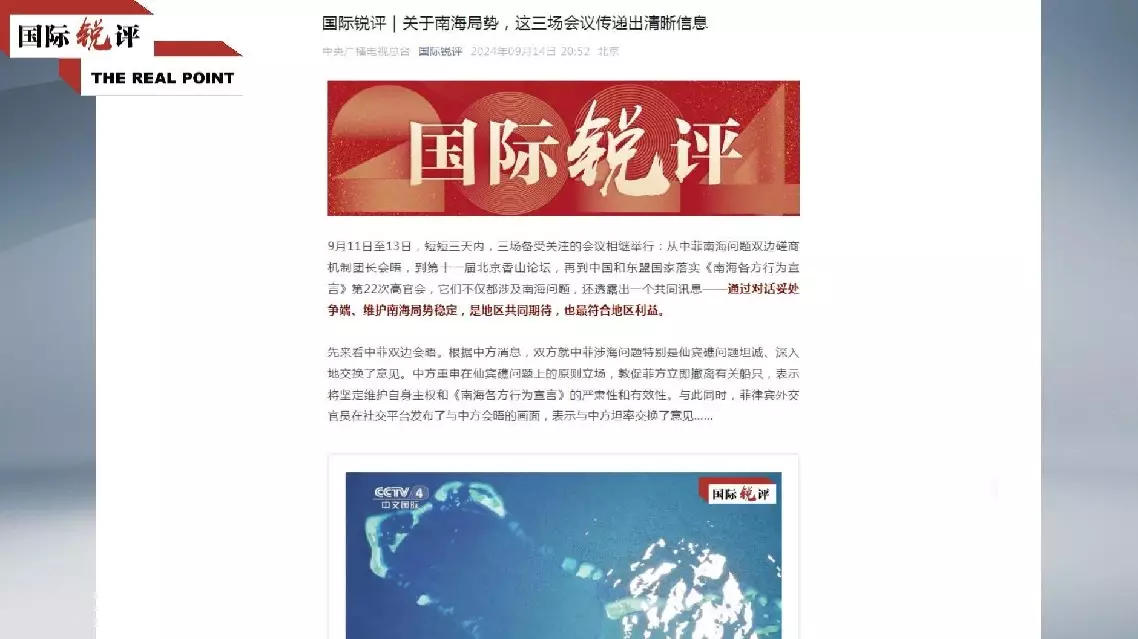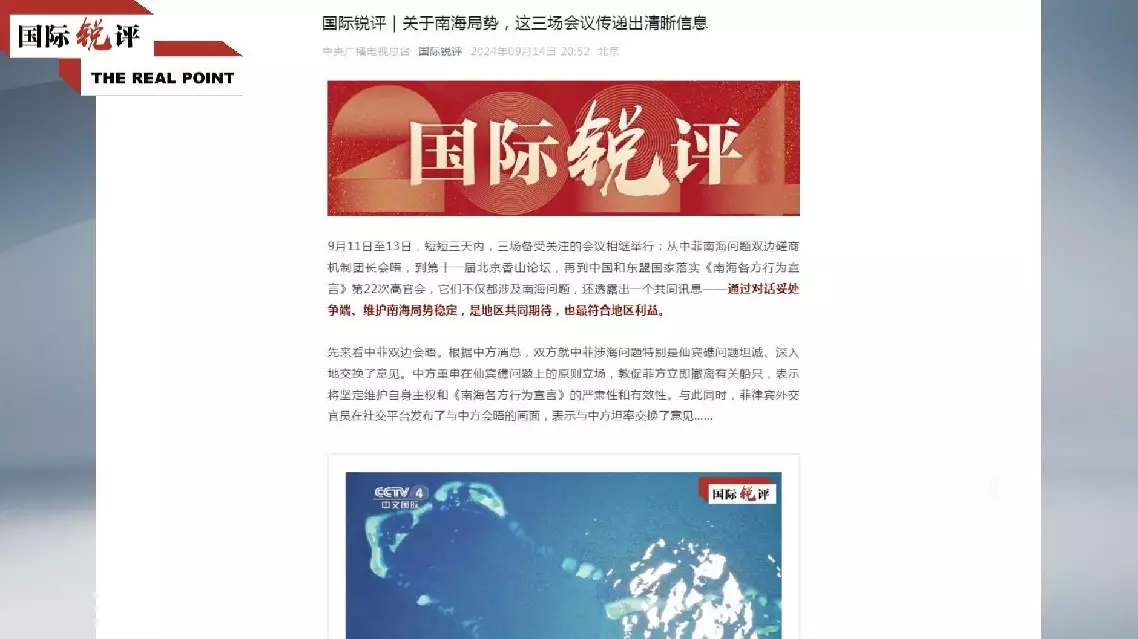China advocates resolving disputes through dialogue to uphold stability in the South China Sea and urges the Philippines to make right choice that conforms to the interests of the region, said a China Media Group (CMG) commentary published on Saturday.
An edited English-language version of the commentary is as follows:
The South China Sea issue is high on the agenda of three highly-anticipated meetings running from Wednesday to Friday, namely the meeting between heads of the China-Philippines Bilateral Consultation Mechanism on the South China Sea (BCM), the 11th Xiangshan Forum, and the 22nd Senior Officials' Meeting on the Implementation of the Declaration on the Conduct of Parties in the South China Sea.
All the three meetings conveyed the same message, that is, resolving disputes through dialogue and safeguarding stability of the South China Sea is the shared aspiration and best serves the interests of the region.
During the bilateral meeting between China and the Philippines, the two sides had a candid and in-depth exchange of views on the maritime issues, in particular the issue of Xianbin Jiao, according to a statement released by the Chinese foreign ministry.
The Chinese side reiterated its principled position on the issue of Xianbin Jiao and urged the Philippine side to immediately withdraw relevant vessels, said the statement, noting China will firmly safeguard its sovereignty and the seriousness and effectiveness of the Declaration on the Conduct of Parties in the South China Sea (DOC).
A diplomat from the Philippines posed a photo of meeting with Chinese counterparts on social media, saying they had frank and candid discussions.
This clearly signals that the current tensions in the South China Sea are primarily instigated by unilateral actions from the Philippines, and, China, considering regional peace and security, seeks to resolve disputes through negotiations with the Philippines.
A rational move for the Philippines would be to promptly correct its wrong actions, demonstrate credibility, adhere to the Declaration on the Conduct of Parties in the South China Sea, and have dialogue and communication with China.
History repeatedly shows that sitting down for talks is the path to resolution and confrontation only leads to escalation.
The responsibilities of major powers in safeguarding regional peace and stability have been discussed at the meetings.
Over the past few months, the Philippines has provocatively stirred up troubles in the South China Sea, intruding into Chinese territories like Ren'ai Jiao, the Huangyan Island, and Xianbin Jiao. Recently, a Philippine Coast Guard vessel stayed at Xianbin Jiao, attempting to replicate the grounding at the Ren'ai Jiao for establishing a long-term presence.
Behind this string of provocative actions, the shadow of the United States looms large. For its own interests, the U.S. has goaded the Philippines into confronting China on South China Sea issues, leading to tensions in the region.
Chinese representatives reiterated China's stance on the South China Sea at the Xiangshan Forum this year.
An attention-grabbing detail emerged when a Chinese delegate directed questions to U.S. representatives: The U.S. claims its presence in the Asia-Pacific region is for regional security, but is the region truly secure now? Why do all the risk points emerge in China's vicinity? Applause rang out in the room.
U.S. officials need to understand that major powers must shoulder more responsibility rather than taking counterproductive actions in resolving international conflicts and regional hotspots.
At the 22nd Senior Officials' Meeting on the Implementation of the Declaration on the Conduct of Parties in the South China Sea that was held on Friday, all parties acknowledged the significance of upholding peace and stability in the South China Sea. They called for strengthened dialogue, restraint, proper handling of differences, and enhanced mutual trust, to maintain the maritime stability.
China advocates for dialogue to resolve differences, which in no way implies making concessions or compromises on the core issue of sovereignty in the South China Sea.
The Philippine side and those behind it, therefore, should not harbor any misconceptions.
Amid changes unseen in a century, implementing the Global Security Initiative and build the South China Sea into a sea of peace, friendship, and cooperation is the shared aspiration of countries in the region, and China will continue to strive towards this goal.
The Philippines must immediately correct its course, return to regional consensus, and make choices that truly align with its national interests.

China advocates dialogue, stability on South China Sea issue

China advocates dialogue, stability on South China Sea issue









